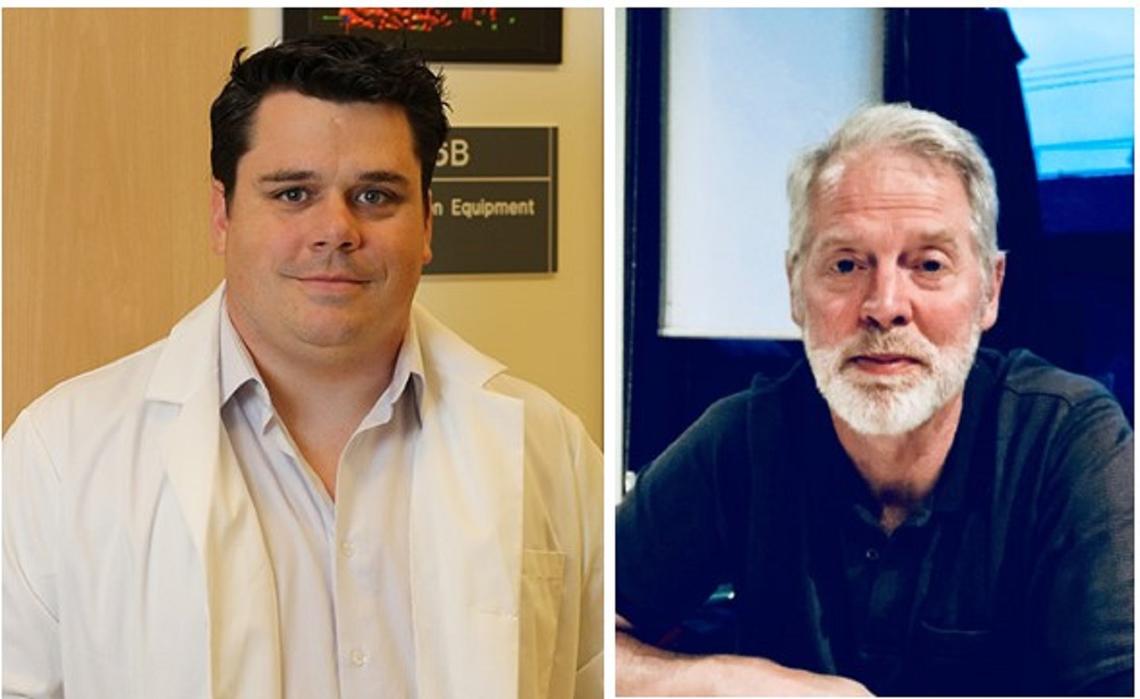
Dr. Craig Jenne, PhD (L) and Dr. Daniel Gregson, MD (R), explain why hospitals have little room to treat influenza this year.
Oct. 14, 2022
Alberta hospitals have had more than 1,000 COVID-19 patients for more than two weeks, according to the latest coronavirus data released by the province on Wednesday.
It’s the first release of COVID data in two weeks when, on Oct. 5, Dr. Deena Hinshaw tweeted Alberta Health was running into a “data flow problem.”
As of Oct. 10, there were 1,014 in Alberta hospitals, an increase of 34 from the previous reporting period two weeks ago. ICU patients are down eight to 31 in the same period.

Dr. Craig Jenne, PhD (L) and Dr. Daniel Gregson, MD (R), explain why hospitals have little room to treat influenza this year.
Dr. Dan Gregson, MD, an infectious diseases physician, University of Calgary associate professor, and member of the Snyder Institute for Chronic Diseases, said the ability for hospitals to take on more patients is in a delicate place, especially if a relatively-diminutive autumn wave of COVID-19 infections sends more to hospital.
Snyder Institute member and University of Calgary infectious diseases associate professor Dr. Craig Jenne, PhD, said a silver lining in the third autumn of the pandemic in Alberta is the relatively slow rise in hospitalizations when compared to fall 2021. “We really do need to ensure that people are seeking to top up their immune systems before that virus settles in and we simply do not have the health care capacity to deal with a large number of patients requiring hospitalization for flu, as well as patients needing (hospitalization for) COVID,” Jenne added. Read more.
The Snyder Institute for Chronic Diseases is a research facility at the University of Calgary’s Cumming School of Medicine focused on advancing modern medicine’s capacity to ease the burden of chronic and infectious disease. Our 480 highly qualified researchers, clinicians and trainees use our world-class research facilities and technologies to make ground-breaking discoveries leading to disease prevention, new treatments and ultimately cures for these conditions.
We believe there are undiscovered pathways to precise medical applications we call Precision Medicine – tailored medical approaches – which will improve the quality of life for millions of people. Investments in our Institute will spark meaningful discoveries and ensure that this vital research continues.